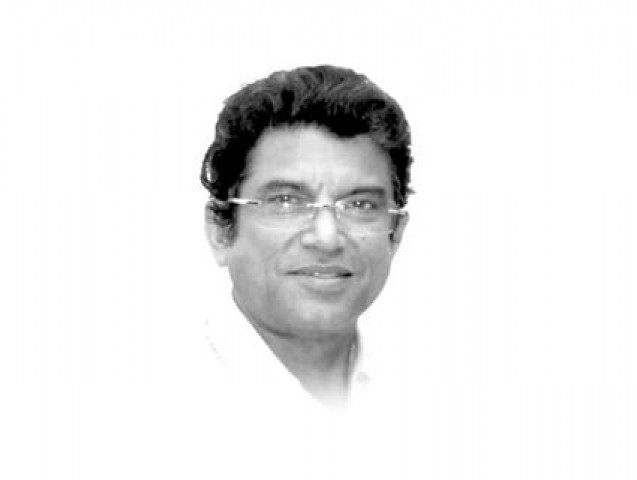In defence of General Kayani
Do not demoralise the troops by criticising the army as an institution; focus on individual culprits.

When General Kayani took command of the army, about 19 administrative units of Fata and Khyber-Pakhtunkhwa were completely or partially under the control of Taliban. Now, there are two. The army is fighting the longest war in its history, in which it has lost about 5,000 soldiers and over 800 have been rendered disabled for life. It is a war not owned by many Pakistanis. No previous chief has commanded an army in such difficult times as General Kayani. No army chief has seen beheadings of his soldiers with their sacrifices not recognised by the nation. General Kayani shoulders the difficult task to motivate them, keep them committed to their goals and prevent any division in the rank and files of the army. Since 2008, many in this country have been inviting General Kayani to intervene in political affairs and get rid of this government. However, he has refused and also convinced his corps commanders that they should not do so. He is probably the first chief who has admitted that the army has committed mistakes; all other chiefs have justified army takeovers, citing different reasons. He is trying to change the course and avoid mistakes of the past, and yet no chief during his service was criticised the way General Kayani has been. The army as an institution is being blamed for acts committed by past generals. The perception that the chief is the sole decision-making authority may not be true in all cases. There are nine corps commanders having their own opinions but the chief faces the brunt of the negative onslaught by the media, also with the responsibility of responding and pacifying those under his command.
Why is the army different from other institutions that are ridiculed by the media? Soldiers do not put their lives at stake only for money; there are additional factors which motivate them to fight, such as pride, honour, ghairat, patriotism, belief in a cause, recognition, comradeship and unit cohesion, etc. High morale matters to them. Unit cohesion is the trust between leaders and the led. Creating an impression that the army has good junior officers and soldiers but that senior officers have always let them down is undermining this very basic concept. The army traditionally does not support individuals, be it the ex-army chief, which is why General (retd) Pervez Musharraf is not in the country, for which he may not be very pleased with General Kayani. To blame the institution as a whole for the wrongdoing of some individuals affects the morale of the troops.
The Afghan Taliban captured Kabul in 1996 and Islamists took control of Timbuktu in April 2012. In both cases, their armies had disintegrated. We face serious threat from the Taliban; they want to take over this country through armed jihad. The army is the institution preventing them from fulfilling their evil designs. Do not demoralise the troops by criticising the army as an institution; focus on individual culprits. God forbid, if there is a division in the army, it will lead to anarchy and consequently, no other institution of the state will survive.
Published in The Express Tribune, November 8th, 2012.














COMMENTS
Comments are moderated and generally will be posted if they are on-topic and not abusive.
For more information, please see our Comments FAQ